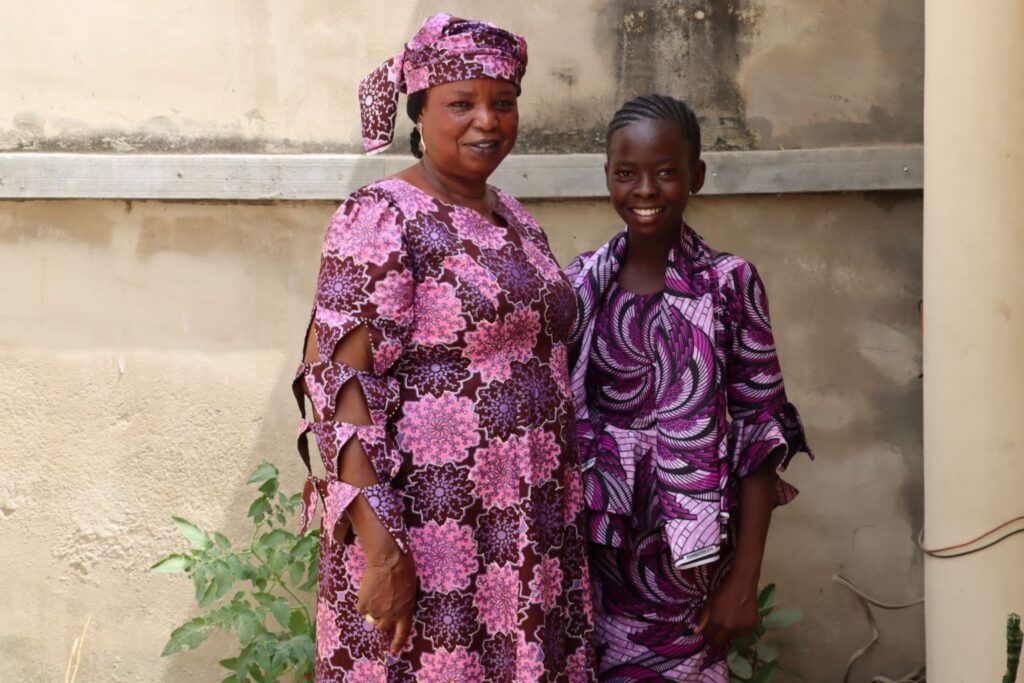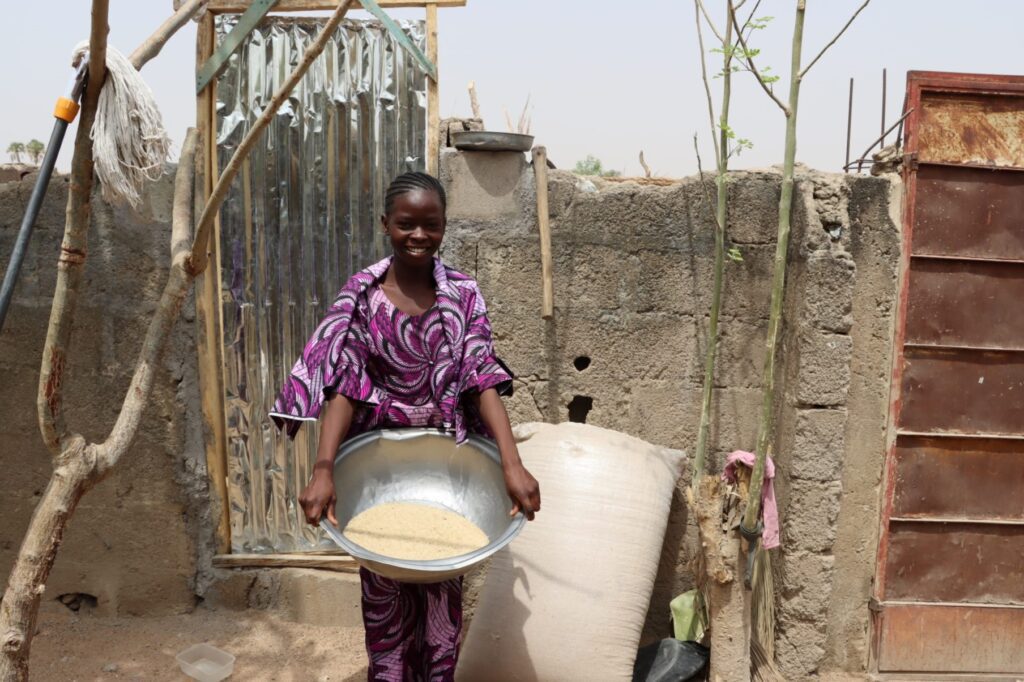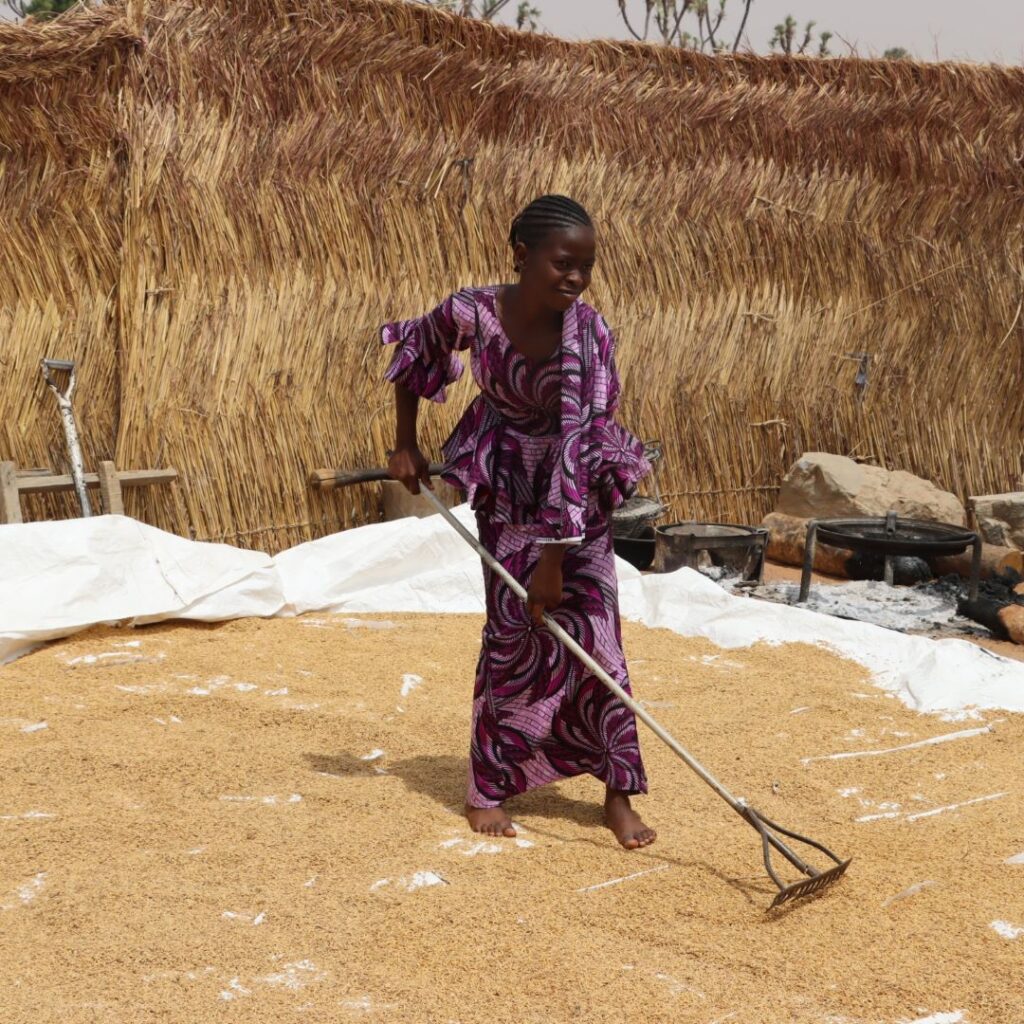Empowering Teen Girls to Lead Nutritional Change in their Communities
At just 13 years old, Wademu Ngmarju has made a name for herself in her community as an expert in farming and nutrition. She grows food in a home garden, raises chickens to earn income, and mentors other teen girls in farming and nutrition.
She started on this journey in 2022 when Helen Keller Intl staff visited Fufore, Nigeria, where Wademu lives with her aunt, to provide nutrition education. They noticed the teenager’s vibrant passion for agriculture and nutrition and recognized her potential as a peer mentor. She now runs monthly nutrition support group meetings for girls her age and helps some of them start their own home gardens.
“I feel so happy teaching my friends and helping them to be productive and industrious,” Wademu says.
Undernutrition Threatens the Health of Women and Girls Across Nigeria
In Nigeria, 7.3 million adolescent girls and women between the ages of 15-49 are undernourished and 55% suffer from anemia. Malnutrition in girls and women is also a global issue, with about 70% experiencing undernutrition, anemia, or other micronutrient deficiencies. Teen girls and women are particularly vulnerable to malnutrition, which can affect many aspects of their health including their growth, immunity, and even cognitive development. It also puts them at greater risk of complications if they become pregnant and can affect the health and development of their child.
Accessing healthy foods in Nigeria has also become more difficult in recent years due to climate change, conflict, and economic inflation. Millions of people have been displaced due to violence and natural disasters, often related to the climate crisis. In addition, food inflation rose to over 40% this year, in part because extreme weather, including flooding and droughts, has destroyed crops and cut farmers off from markets.

By supporting women with training and resources to start community and home gardens, Helen Keller is helping them access nutritious foods and build income for their families, despite mounting challenges. Over the past three decades of this work, we’ve reached more than 2.1 million households across Africa and Asia.
In Nigeria’s Adamawa State, Helen Keller is working with five communities hosting displaced people, including Fufore, to improve health, nutrition, and economic empowerment for women and children through climate-smart agriculture and nutrition education, with support from the Church of Jesus Christ of Latter-day Saints.
Cultivating a Community Leader
Wademu received training on nutrition for children, adolescents, and women, and began leading monthly nutrition support group meetings for other teen girls in her community. She teaches them how to care for themselves and eat nutritious meals, including healthy recipes made with available local ingredients. Wademu also provides information on good nutrition in pregnancy and the importance of breastfeeding, so they can support pregnant relatives now and look after their own health if they have children in the future.

Learning about nutrition motivated Wandemu to learn to grow healthy foods too. She began building skills in climate-smart farming techniques and received resources to start a home garden, including seeds for nutritious vegetables like amaranthus, leafy greens, okra, and vitamin A-fortified maize. Her aunt helped her create a space for her garden and Wademu was soon growing enough to help feed the entire household throughout the year, with crops left over to spare. With the proceeds from selling her surplus vegetables, the teen purchased chicks, which she raised and sold to bring in additional income.
Her efforts have inspired other teen girls in Fufore to start their own home gardens too. When her friend Eunice took an interest in the garden, Wademu taught her how to plant and tend to crops, gave her some seeds to get started, and advised her on selling produce at the market. Eunice’s garden is now thriving, and she is earning enough to help pay her school fees and provide additional income to help her single mother.
Wademu is proud of her accomplishments and welcomes the opportunities learning about nutrition and agriculture have opened for her. “…before now, I did not know anything concerning gardening,” she says. “With this, now I feel responsible, and I can achieve a lot.”

Help girls like Wademu create lasting change in their own lives and communities.









